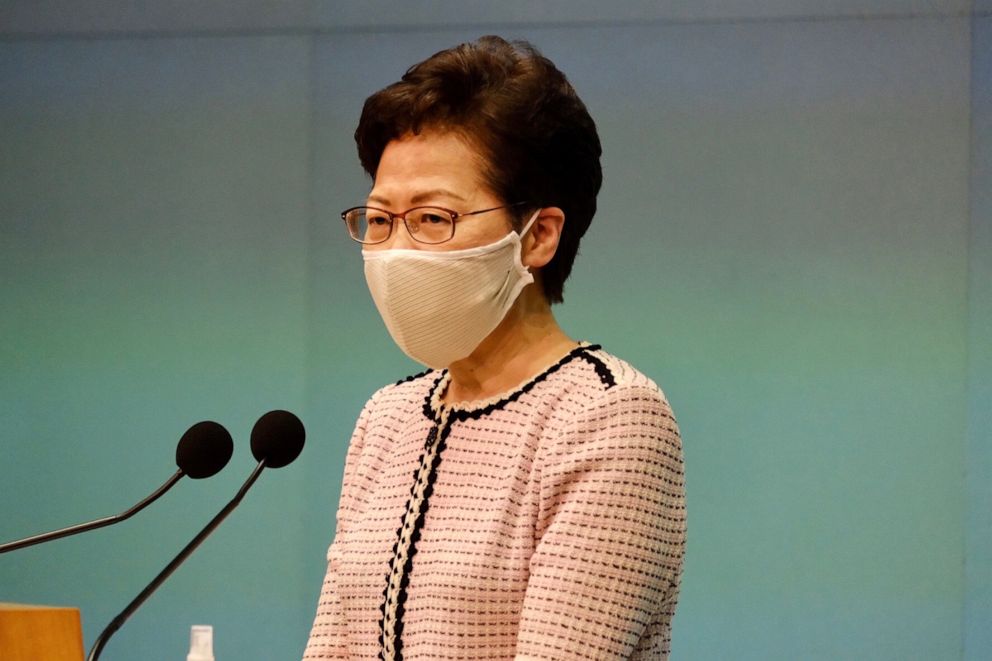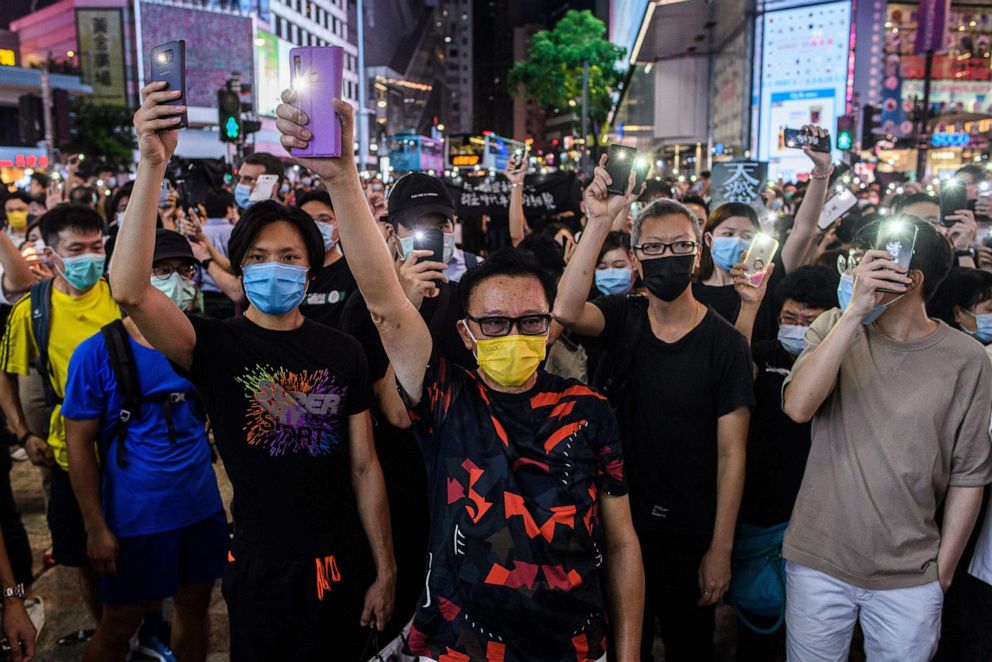Beijing tightens screws on Hong Kong as contentious new law goes into effect on handover anniversary
The law marks a turning point and leaves questions about Hong Kong's future.
HONG KONG -- In early June, Zhang Xiaoming, one of the top Chinese official in charge of Beijing's Hong Kong portfolio called for Hong Kong people to return home to the motherland for a second time after a year of anti-government protests.
In essence he was calling for a symbolic "Second Handover."
So on the eve of the former British Colony's 23rd anniversary of its return to China, a contentious new national security law Beijing unilaterally drafted for Hong Kong passed through China's top lawmaking body Tuesday morning by unanimous decision.
China's Xinhua News Agency later reported that Chinese President Xi Jinping signed the presidential order for the law to be promulgated into Hong Kong's Basic Law, the city's mini-constitution.
It is largely believed that the law targeting the protest movement in Hong Kong will become effective overnight in the territory before the Chinese five star flag is raised on the morning of July 1.
Hong Kong leader Carrie Lam issued a statement welcoming the passage of the law saying, "the legislation is an important step to improve the "One Country, Two Systems" institutional system as well as restore stability in Hong Kong society as soon as possible."

Since the law was proposed in late May, the Beijing and Hong Kong governments have not revealed much more about the law other than it sought to "effectively prevent, curb and punish four types of crimes seriously endangering national security, namely acts of secession, subversion of state power, terrorist activities, and collusion with foreign or external forces to endanger national security."
Without any details of the law, Lam in her statement again sought to reassure Hong Kong residents that the law "only targets an extremely small minority of offenders while the life and property as well as various legitimate basic rights and freedoms enjoyed by the overwhelming majority of citizens will be protected."
This marks a distinct turning point for the city, leaving many questioning the future of Hong Kong.
"This is the end of one country two systems and the process to 'authoritarian-ize' Hong Kong is completed" legal scholar and Occupy Central activist Benny Tai told ABC News.
Lee Cheuk-yan, a fellow pro-democracy activist and one of the organizers of the annual Tiananmen Vigil, seconded that sentiment saying that Tuesday marked the "beginning of the reign of fear by the CCP"
Lee is worried that he may be a target because his organization's position advocated for the end of one party rule in China but he has vowed to remain in Hong Kong and continue fighting.

"Will stay on and fight"
The law was authorized in Beijing with many in Hong Kong having never even seen it, showing the extent of haste at which China moved to push through the law that even lacked the usual standard of relative transparency accorded to other proposed laws on the mainland.
Even without details for much of the day, the announcement of the law's passage seemed to have an immediate chilling effect.
Prominent activists Joshua Wong, Nathan Law and Agnes Chow who all came to prominence during the 2014 Umbrella Movement protests announced almost immediately that they will leave their position in their political party Demosisto and continue their activism on their own. They did not provide specific reasons for their resignations.
A few hours later, the remainder of their party Demosisto announced its decision to disband over Twitter.
Two nativist political parties, Hong Kong Indigenous and Hong Kong National Front, that pushed for independence also announced their decision to disband and cease all activities within Hong Kong shifting their activism abroad.




